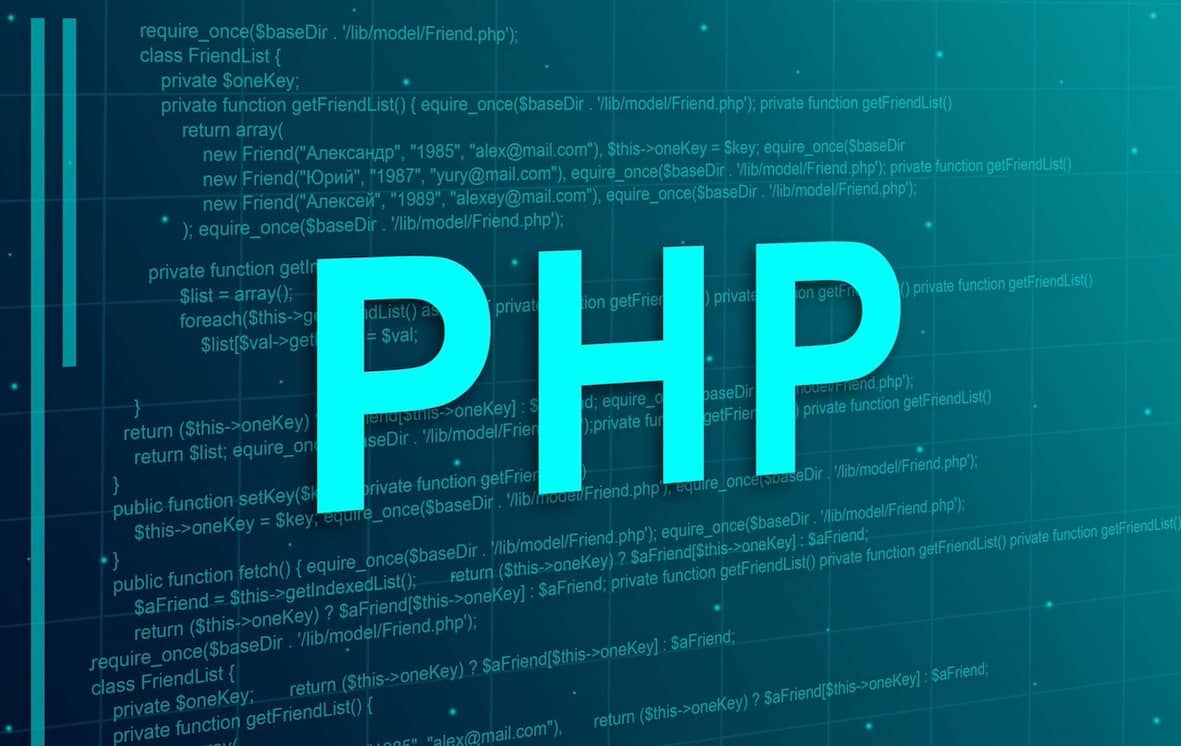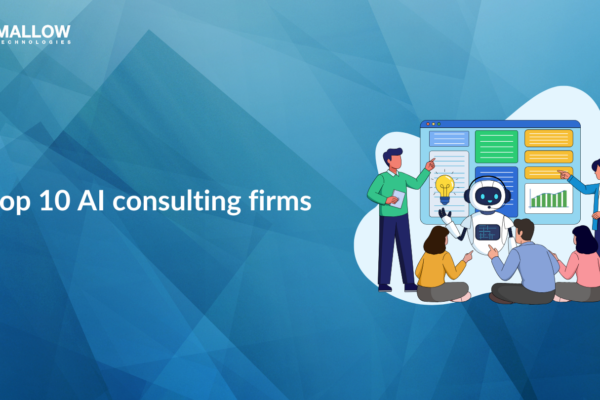If you plan to build your application in PHP, selecting the proper framework is one of the challenging tasks. The landscape of PHP frameworks has grown significantly over the years, offering many options tailored to different development needs and styles.
Selecting the wrong PHP framework can result in prolonged development cycles, increased maintenance efforts, and the need for costly rewrites. Therefore, for those embarking on the journey of PHP application development, gaining a solid grasp of the available framework choices is paramount to ensuring a smooth and cost-effective development process.
At Mallow, we recognise the significance of informed choices. We know that every decision made by our prospective clients plays a pivotal role in fostering the success of their businesses. With our understanding of PHP frameworks, we aim to provide valuable insights that empower businesses to make well-informed decisions, thereby paving the way for their sustained growth and prosperity.
After going through this article, you will emerge with a comprehensive understanding of the most popular PHP frameworks available for web application development. You will gain insights into the distinct features, advantages, and use cases of each framework, enabling you to make informed decisions aligned with your specific project requirements.
What factors do I need to consider before choosing my PHP application framework?
The decision to select a PHP framework should not be solely influenced by any single factor. Making an informed decision involves weighing various aspects of the framework such as performance, scalability, community support, available features, and ease of learning. But, it should be a result of careful consideration of multiple factors in conjunction with the specific scope and requirements of your project.
- Project requirements – Understand the specific needs of your project. Is it a small web application, a content management system, an e-commerce platform, or a complex enterprise solution? Different PHP frameworks cater to varying project sizes and complexities.
- Easy to develop and scalable – Ensuring the chosen PHP framework enables efficient application development and can scale seamlessly as new features are consistently incorporated is of utmost importance. It should let you quickly create and improve features without making things too complicated. This way, it helps everyone work together smoothly and get things done faster.
- Availability of developers – Opting for a framework for your application should involve considering the availability of developers in the market. This ensures that you have a sufficient pool of developers ready to address any uncertainties that may arise, whether at the project’s outset or during its progression.
- Performance – Investigate the framework’s performance benchmarks. It should be able to deliver efficient and speedy applications. Consider factors like caching mechanisms and database query optimisation.
- Ecosystem and libraries – Assess the availability of third-party libraries and packages that can accelerate development. A robust ecosystem reduces the need to build everything from scratch.
- Longevity – Consider the framework’s history and how actively it’s being maintained. Frameworks that are regularly updated and adapted to new PHP versions are generally safer long-term bets.
- API Support – If your application needs to provide APIs for third-party integrations or mobile applications, a framework that offers robust API support and tools can be advantageous.
- Modern frontend integrations – In today’s digital landscape, there are a lot of modern frontend solutions like, WebSockets for real-time communications, Single Page applications for better and enhanced user experience etc. The framework you choose should accommodate what’s mentioned here well enough to match your application’s requirements.
Some popular PHP frameworks
Symfony:
Symfony is a high-performance PHP framework prioritising modularity, reusability, and best practices in web application development. It provides a comprehensive set of reusable components and tools that streamline the creation of complex and maintainable applications.
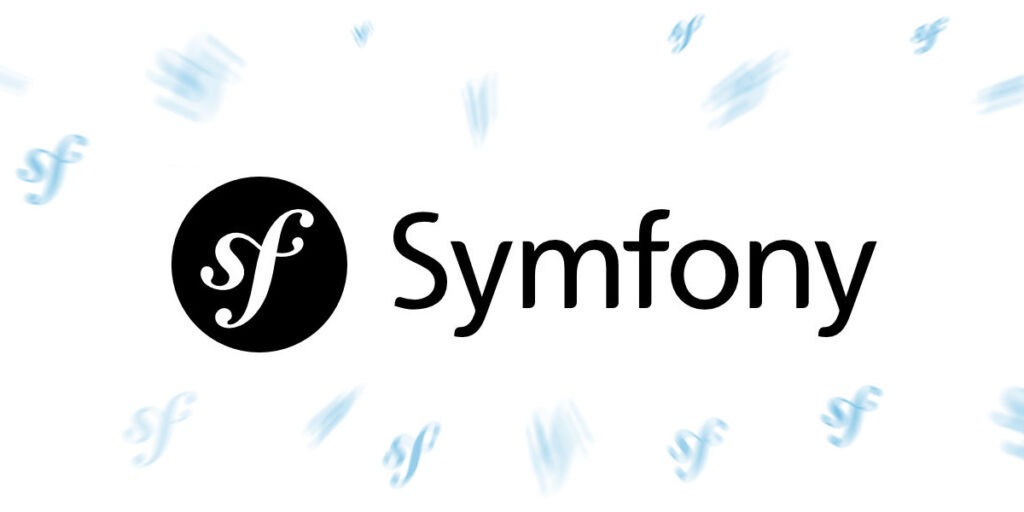
Pros:
- Offers a rich set of reusable components
- Excellent documentation
- Provides Profiler and Debugging Tools, Dependency Injection Container
- Boasts an active and robust community
- Suitable for both small-scale and large-scale projects, making it an excellent choice for applications of varying sizes.
Cons:
- Initial setup and configuration can be intricate
Laravel
Laravel is a modern and elegant PHP framework that emphasises developer-friendly syntax, expressive coding, and a wide range of features to simplify the process of building web applications.

Pros:
- Offers a robust ORM (Eloquent)
- Efficient routing system
- Offers a handful of built-in features like asset pipeline, Queues, Job Scheduling, etc.
- Syntax is designed to be expressive and easy to read, making code more intuitive
- Has a vast ecosystem of packages
- Tools like Laravel Shift simplifies the upgrade process and maintenance
- Has an active community as compared with other frameworks
- Carries excellent documentation
- Supports the integration with Rest APIs seamlessly.
Cons:
- For smaller projects the rich feature set might be more than what’s needed
- When compared with Symfony, restrictions on customisation might also apply
CodeIgniter
CodeIgniter is a lightweight and straightforward PHP framework renowned for its simplicity, speed, and ease of use. It is designed to provide a minimalistic yet practical toolkit for building web applications with minimal configuration.
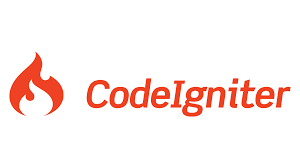
Pros:
- Is lightweight and fast
- Convention over configuration
- Quick and hassle-free setup
- Active community that provides support, plugins, and extensions
- Is well-documented
Cons:
- Fewer built-in features compared to other frameworks
- Only suitable for smaller projects
- CodeIgniter does not facilitate the streamlined development of REST APIs.
Yii
Yii is a high-performance, component-based PHP framework that emphasises speed, security, and an efficient development process. It’s designed to help developers create robust and modern web applications that focus on minimising repetitive tasks.

Pros:
- Offers strong caching support
- Has an active community
- Has a unique built-in client-side validation coupled with the class of a form or a model.
- It’s well-suited for projects where performance is a critical factor.
Cons:
- Documentation may not be as comprehensive as some other frameworks.
- Requires some familiarity with the framework
CakePHP
CakePHP is a rapid development PHP framework that follows the principle of “convention over configuration,” aiming to simplify and accelerate the web application development process while maintaining code organisation and consistency.

Pros:
- Provides a well-structured and intuitive coding approach
- Convention over configuration
- Has built-in features like ORM
- Has an active community that contributes plugins, and extensions, and provides support
- Excellent for projects requiring fast development
Cons:
- Limited flexibility compared to more customisable frameworks
- The ecosystem might not be as extensive as others
- Its built-in features might introduce some overhead in terms of performance
Zend Framework (Now Laminas Project)
Zend Framework, now rebranded as the Laminas Project is an open-source, highly modular PHP framework that prioritises flexibility, scalability, and robust architecture. It empowers developers to build complex and feature-rich web applications that focus on maintaining the separation of concerns.
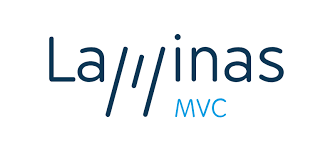
Pros:
- Offers a highly modular structure
- Suitable for enterprise-level applications
- Has a built-in role-based access control (RBAC) that offers authentication, password protection, etc
- Supports various authentication and authorisation mechanisms
Cons:
- Setup and configuration can be intricate
- Feature-rich nature might be overwhelming for smaller applications
Phalcon
Phalcon is a full-stack PHP framework that is known for its exceptional performance and low resource consumption. It’s unique in that it’s implemented as a C extension for PHP rather than being written purely in PHP code.
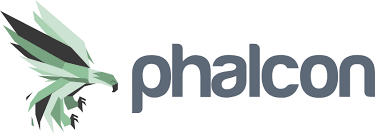
Pros
- Better performance
- Uses less memory
- Is loosely coupled
- Can extend its functionality through custom components and plugins
Cons
- Limited deployment options due to C extension
- Community is smaller than famous PHP frameworks like Laravel or Symfony.
- Limited number of packages.
Comparing the best PHP frameworks by category
Below is a table that will give you an overview of how the different frameworks considered above stand out when evaluated using some basic criteria.
Here, the terms mentioned below have been employed within the context of the following particulars:
- Time to market – Indicates how user-friendly the framework is, especially for developers who are new to it.
- Actively in development – Reflects the frequency of updates, new features, and overall commitment to maintaining the framework.
- Availability of developers – How common is it for you to get developers to develop your application in that particular framework?
- Flexibility – Assesses the extent to which the framework allows customisation and integration with external tools.
- Performance – Reflects the framework’s efficiency in speed and resource usage.
- Security – Evaluate the built-in security measures and features that help developers protect their applications.
- Features – (built-in) – Examines the richness of the built-in features and functionalities provided by the framework.
- Architecture – Considers the framework’s underlying design principles and how they promote maintainability and scalability.
| Framework | Time to Market | Actively in Development | Availability of Developers | Built-in features | Flexibility | Performance | Built-in Security features | API Support |
| Symfony | Good | Best | Best | Best | Best | Good | Best | Best |
| Laravel | Best | Best | Best | Best | Good | Good | Best | Best |
| CodeIgniter | Best | Good | Moderate | Moderate | Moderate | Good | Moderate | Moderate |
| Yii | Good | Good | Moderate | Good | Good | Best | Good | Good |
| CakePHP | Good | Moderate | Moderate | Moderate | Moderate | Moderate | Moderate | Good |
| Zend Framework | Moderate | Moderate | Moderate | Good | Good | Good | Good | Good |
| Phalcon | Moderate | Moderate | Moderate | Moderate | Moderate | Best | Good | Good |
| Winning Framework | Laravel and CodeIgniter | Symfony and Laravel | Laravel and Symfony | Laravel and Symfony | Symfony | Yii and Phalcon | Laravel and Symfony | Laravel and Symfony |
Which PHP framework to choose for your application?
After you have gone through the different PHP frameworks, the next really important step is to check which framework fits for your project.
Choosing the right PHP framework for your application is a critical decision that depends primarily on the unique requirements and objectives of your project. Each PHP framework offers distinct features, strengths, and weaknesses, making it essential to carefully assess your application’s specific needs and your team’s expertise before making a choice. To help you get started, the table below provides a general idea of which PHP framework could be a feasible option for your project based on common use cases and features:
| Type of the application | Popular examples from the type of application | Suitable PHP frameworks |
| Small-Scale applciations | Personal Websites, Portfolio Websites, Landing Pages, Simple CRUD Apps etc | CodeIgniter, Slim and Laravel |
| Medium-Scale applications | Enterprise Resource Planning systems, Customer Relationship Management systems etc. | Symfony and Laravel |
| Enterprise-Scale applications | Supply Chain Management systems, Healthcare Information Systems, Large-Scale Analytics Platforms etc | Symfony,Phalcon, Laminas and Laravel |
| Massive-Scale applications | Search Engines, Social Media Platforms, Streaming Services, Cloud Computing Platforms etc | Symfony and Laminas |
Please note that this table provides a starting point, and your final decision should consider factors such as project complexity, scalability, team familiarity, and available resources.
Still, wondering from where you need to take your next step? Feel free to reach out to our team.
Your queries, our answers
Yes, we can continue developing your existing Laravel application. Please provide the current project details so we can assess and proceed. For more details, get in touch with our team.
No, we focus on custom Laravel solutions tailored specifically to your needs. We do not offer pre-built, off-the-shelf products.
Yes, we develop Laravel applications for various domains, including e-commerce, healthcare, finance, and more.
The cost varies based on the project's complexity and scope. For a basic MVP, costs generally range from $20,000 to $40,000 for web apps and $10,000 to $25,000 for mobile apps. For more advanced applications, costs can be higher. We offer a detailed cost breakdown tailored to your specific needs. To know more, check out our article on How much does it cost to work on a Laravel project with Mallow? and discover how we can build a strong partnership together.
The timeline depends on the project's complexity. A basic project may take a few weeks, while more complex applications could take several months.
Yes, we can align our working hours with your time zone to facilitate effective communication throughout the development process. For more details on how you can handle timezone differences efficiently, do check out our article on how to handle timezone differences while working with an offshore development team.
Mallow offers the following outsourcing models: Project-based outsourcing, Staff augmentation, & Dedicated development team (DDT)
Yes, we offer maintenance and support services to ensure your Laravel application remains up-to-date and functional.
Yes, you will own the intellectual property rights of your Laravel application upon project completion. Check out our article on why owning intellectual property rights while outsourcing your application is important.
The cost is influenced by several factors including the complexity of the project, the number of features required, and whether the application is for web or mobile. We provide a personalized estimate based on your project details.
We work with the latest stable versions of Laravel and can also support older versions if needed based on your project requirements. For more details check out our article on Laravel upgrade: when and how to transition to the latest version
Yes, we offer post-deployment support to address any issues and provide updates as needed.
To hire a Laravel developer from Mallow, you can contact us with your project requirements. We'll discuss your needs, suggest suitable developers or teams, and provide you with a proposal. Once the terms are agreed upon, we can start the development process.
Yes, you can hire a dedicated Laravel developer or a team of developers from Mallow. This allows you to have a dedicated resource working exclusively on your project, providing more control and flexibility over the development process.
To hire the right laravel developer for your project, check out this article on tips to hire the right Laravel developer.
Author
Anandhan
Anandhan is a passionate technical lead at Mallow, where he plays a crucial role in driving innovation and overseeing the development of cutting-edge solutions. With a wealth of experience in the field of technology, he consistently strives to elevate his team's performance and deliver exceptional results. His multifaceted interests inspire him to approach challenges with creativity and an open mind, leading to innovative solutions that transcend conventional boundaries. Beyond his professional endeavours, Anandhan nurtures a love for literature and cinema. During his free time, you'll often find him engrossed in the pages of books across various genres, exploring diverse narratives and gaining insights from authors around the world.

